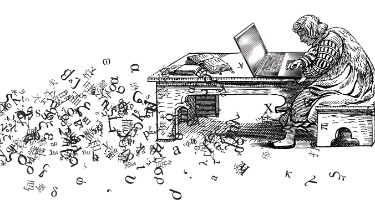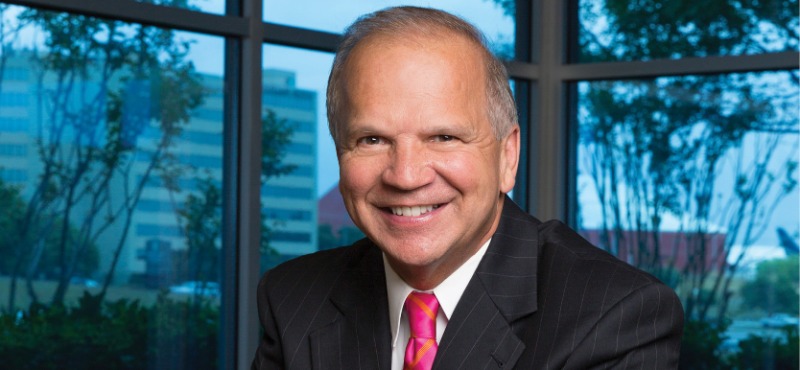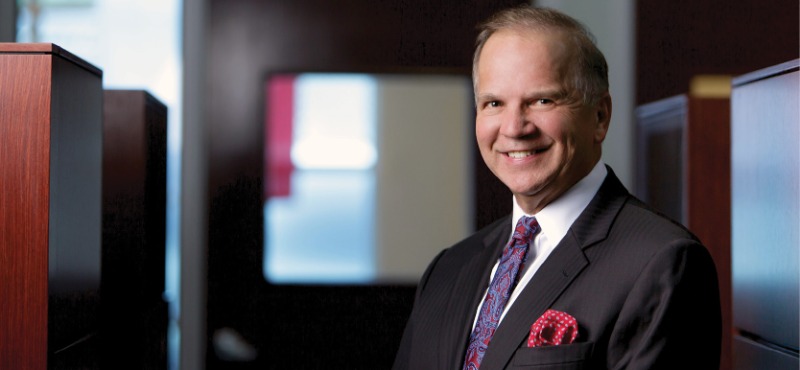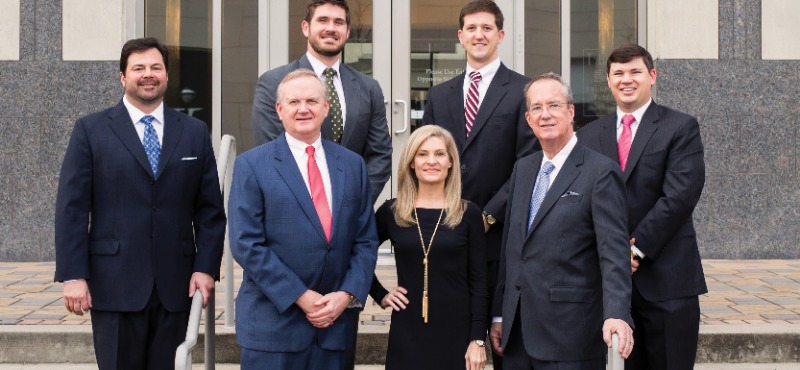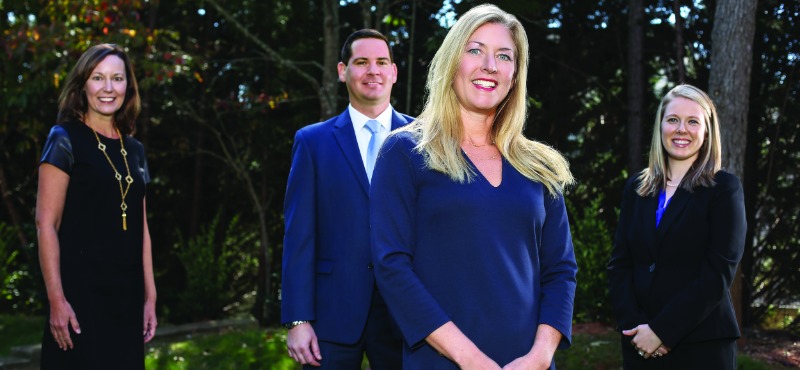Delete Boilerplate to Improve Discovery and Avoid Trouble
The Discovery Code shall be construed, administered and employed by courts and parties to secure the just, speedy and inexpensive determination of every action.
Okla. Stat. tit. 12 § 3225.
Oklahoma’s Discovery Code is largely found at Okla. Stat. tit. 12 §§ 3224 - 3237. Several of those statutes are lengthy, detailing the nature and scope of discovery requests as well as the duties of the responding party. The Discovery Code and interpreting case law provides for liberal discovery. “Parties may obtain discovery regarding any matter that is relevant to any party's claim or defense . . .” Okla. Stat. tit. 12 § 3226(A)(1) In State ex rel. Prot. Health Services v. Bfc, 158 P.3d 484, 489, 2007 OK CIV APP 24, ¶ 17, the Oklahoma Court of Civil Appeals said,
Civil trials no longer are to be conducted in the dark. Discovery, consistent with recognized privileges, provides for the parties to obtain the fullest possible knowledge of the issues and facts before trial. Rozier v. Ford Motor Co., 573 F.2d 1332, 1346 (5th Cir.1978). "The aim of these liberal discovery rules is to `make a trial less a game of blind man's bluff and more a fair contest with the basic issues and facts disclosed to the fullest practicable extent.'" Id.
“Discovery by interrogatory requires candor in responding.” Dollar v. Long Mfg., 561 F.2d 613, 616 (5th Cir.1977); West v. Cajun's Wharf, Inc., 1988 OK 92, ¶ 13, 770 P.2d 558, 562.” State ex rel. Prot. Health Services v. Bfc, 158 P.3d 484, 489, 2007 OK CIV APP 24, ¶ 17. Discovery in civil cases is liberal, constrained by legitimate claims of privilege and work-product, remoteness (relevance), and by extraordinary expense.
There are many potential adverse consequences for those behave badly in the discovery process. “. . . [A]n evasive or incomplete answer is to be treated as a failure to answer.” Okla Stat. tit. 12 § 3237(A)(3). Potential discovery sanctions include preclusion of evidence, striking of pleadings, a litigation stay, contempt of court, and attorney fees. Okla. Stat. tit. 12 § 3237(B)(2). Part G of Okla. Stat. tit. 12 § 3226 requires,
SIGNING OF DISCOVERY REQUESTS, RESPONSES AND OBJECTIONS. Every request for discovery, response or objection thereto made by a party represented by an attorney shall be signed by at least one of the party's attorneys of record in the party's individual name whose address shall be stated. A party who is not represented by an attorney shall sign the request, response or objection and state the party's address. The signature of the attorney or party constitutes a certification that the party has read the request, response or objection, and that it is:
1. To the best of the party's knowledge, information and belief formed after a reasonable inquiry consistent with the Oklahoma Discovery Code and warranted by existing law or a good faith argument for the extension, modification or reversal of existing law;
2. Interposed in good faith and not primarily to cause delay or for any other improper purpose; and
3. Not unreasonable or unduly burdensome or expensive, given the nature and complexity of the case, the discovery already had in the case, the amount in controversy, and other values at stake in the litigation. If a request, response or objection is not signed, it shall be deemed ineffective.
If a certification is made in violation of the provisions of this subsection, the court, upon motion or upon its own initiative, shall impose upon the person who made the certification, the party on whose behalf the request, response or objection is made, or both, an appropriate sanction, which may include an order to pay to the amount of the reasonable expenses occasioned thereby, including a reasonable attorney fee.
The most common recurring problems in written discovery are related to things not found in the Discovery Code: excessive, unnecessary, and improper boilerplate in discovery instructions, definitions, and objections. Oklahoma’s state appellate courts have not fully addressed these problems. Fortunately, there are a number of instructive federal opinions. The Oklahoma Supreme Court has said that since Oklahoma’s discovery statutes track the Federal Rules, guidance can be found in decisions from federal courts. See West v. Cajun’s Wharf, Inc., 1988 OK 92, 770 P.2d 558; Hall v. Goodwin, 1989 OK 88, 775 P.2d 291; Heffron v. District Court Oklahoma County, 2003 OK 75, 77 P.3d 1069.
What’s Wrong with Discovery Instructions and Definitions
Almost all discovery requests begin with a lengthy, boilerplate set of “instructions” and “definitions.” Steven S. Gensler & Lee H. Rosenthal, Breaking the Boilerplate Habit in Civil Discovery, Akron L. Rev. Vol. 51, 683, 684 (2017). As there are no references to instructions in the Discovery Code, the instructions and definitions included with written discovery requests vary, ranging from recitation of the Discovery Code, warnings concerning failure to timely respond, and saying things such as:
Whenever used herein, the singular shall be deemed to include the plural and the plural shall be deemed to include the singular; the masculine shall be deemed to include the feminine and the feminine shall be deemed to include the masculine; the disjunctive "or" shall be deemed to include the conjunctive "and" and the conjunctive "and" shall be deemed to include the disjunctive "or"; and each of the functional words, "each", "every", "any", and "all", shall be deemed to include each of the other functional words.
When instructions suggest to the recipient that their duties in responding exceed the requirements of the Discovery Code, the instructions can provoke a preliminary, expensive battle between counsel and pave the way for a competitive set of objections. In 2013, United States Magistrate Judge Paul J. Cleary in the U.S. District Court, Northern District of Oklahoma, issued an “Opinion and Order” addressing discovery instructions and objections in Howard v. Segway, Inc., No. 11-CV-688-GKF-PJC, 2013 WL 869955, (N.D. Okla. 2013). He began his order addressing the plaintiff’s discovery requests and their failure to state with reasonable particularity what they were seeking. “The document request begins with the all too common “Definitions” section. “Documents”, for example, includes “hotel charges, receipts, freight bills….” . . . There is no indication that hotel charges are an issue in this lawsuit, but Plaintiffs have them covered just in case. . . . Such definitions are generally of little practical value, especially when they haven’t been edited to fit the case at hand. However, they do set the town for what follows, and what follows are often ill-defined discovery requests that fail the reasonable particularity standard of Rule 34.” In his 2012 article, Impeding Discovery | Eliminating Worthless Interrogatory Instructions and Objections, West Virginia Chief Justice Menis E. Ketchum II said, “It seems like every set of interrogatories contains four pages of mindless, prefatory and burdensome instructions and definitions. A question can't be answered without rereading the four pages of boiler- plate instructions and definitions.” West Virginia Chief Justice Ketchum noted that, like Oklahoma’s Discovery Code, West Virginia’s Rules of Civil Procedure did not authorize the party issuing discovery to give instructions or definitions. After listing some of the most common examples of poor and unnecessary instructions, he concluded, “Lengthy, burdensome, boilerplate, self-serving instructions and definitions neither contribute to the purpose of our Rules of Civil Procedure nor contribute to the "just, speedy and inexpensive determination" of a lawsuit. The use of unreasonable definitions and instructions may render interrogatories so burdensome to the answering party and to the court that an objection to the entire series of interrogatories should be sustained.”
Oklahoma’s Discovery Code is thorough in the duties of counsel and the responding party. Before sending a set of discovery requests with instructions or definitions, consider, are these instructions necessary? Do they merely restate the Discovery Code? Could the underlying discovery requests be rewritten to eliminate the need for instructions or definitions? Do these instructions or definitions help promote the “just, speedy and inexpensive determination” of this case?
A lawyer who seeks excessive discovery given what is at stake in the litigation, or who makes boilerplate objections to discovery requests without particularizing their basis, or who is evasive or incomplete in responding to discovery, or pursues discovery in order to make the cost for his or her adversary so great that the case settles to avoid the transaction costs, or who delays the completion of discovery to prolong the litigation in order to achieve a tactical advantage, or who engages in any of the myriad forms of discovery abuse that are so commonplace is . . . hindering the adjudication process, and making the task of the “deciding tribunal not easier, but more difficult,” and violating his or her duty of loyalty to the “procedures and institutions” the adversary system is intended to serve. Thus, rules of procedure, ethics and even statutes make clear that there are limits to how the adversary system may operate during discovery.
Mancia v. Mayflower Textile Servs. Co., 253 F.R.D. 354 (D. Md. 2008) (Grimm, M.J.)
Boilerplate is Bad
The worst behavior in written discovery is also the most frequent: general, boilerplate objections. The requirements for a valid objection are basic and firm: the objection must be timely (within 30 days) and stated with specificity. See Okla. Stat. tit. 12 § 3233(A); Okla. Stat. tit. 12 § 3234(B)(2)(c)&(d); Okla. Stat. tit. 12 § 3236(A). In his discovery opinion in Liguria Foods, Inc., v. Griffith Laboratories Inc., No. C 14-3041-MWB - Document 136 (N.D. Iowa 2017), U..S. District Judge Mark W. Bennett expressed his frustration with the continuing practice of general and boilerplate objections, saying, “This case squarely presents the issue of why excellent, thoughtful, highly professional, and exceptionally civil and courteous lawyers are addicted to “boilerplate” discovery objections. More importantly, why does this widespread addiction continue to plague the litigation industry when counsel were unable to cite a single reported or non-reported judicial decision or rule of civil procedure from any jurisdiction in the United States, state or federal, that authorizes, condones, or approves of this practice?” Judge Bennett determined that both parties had violated the discovery rules in the Federal Rules of Civil Procedure, and he required counsel to respond to his concerns at a show cause hearing. The responses of counsel were telling:
As to the question of why counsel for both sides had resorted to “boilerplate” objections, counsel admitted that it had a lot to do with the way they were trained, the kinds of responses that they had received from opposing parties, and the “culture” that routinely involved the use of such “standardized” responses. Indeed, one of the attorneys indicated that some clients—although not the clients in this case—expect such responses to be made on their behalf. I believe that one of the attorneys hit the nail squarely on the head when he asserted that such responses arise, at least in part, out of “lawyer paranoia” not to waive inadvertently any objections that might protect the parties they represent. Even so, counsel for both parties admitted that they now understood that such “boilerplate” objections do not, in fact, preserve any objections. Counsel also agreed that part of the problem was a fear of “unilateral disarmament.” This is where neither party’s attorneys wanted to eschew the standard, but impermissible, “boilerplate” practices that they had all come to use because they knew that the other side would engage in “boilerplate” objections. Thus, many lawyers have become fearful to comply with federal discovery rules because their experience teaches them that the other side would abuse the rules. Complying with the discovery rules might place them at a competitive disadvantage.
Tradition, however, is an inadequate defense to bad discovery conduct. There is a growing host of federal opinions identifying general objections as unauthorized, bad faith, and sanctionable behavior. One of the most famous opinions is Judge Grimm’s in Mancia v. Mayflower. In Mancia, Judge Grimm noted that, “boilerplate objections that a request for discovery is “overboard and unduly burdensome, and not reasonably calculated to lead to the discovery of material admissible in evidence,” . . . persist despite a litany of decisions from courts, including this one, that such objections are improper unless based on particularized facts.” (emphasis added). He continued, “It would be difficult to dispute the notion that the very act of making such boilerplate objections is prima facie evidence of a Rule 26(g) violation, because if the lawyer had paused, made a reasonable inquiry, and discovered facts that demonstrated the burdensomeness or excessive cost of the discovery request, he or she should have disclosed them in the objection, as both Rule 33 and 34 responses must state objections with particularity, on pain of waiver.” Id.
Attorneys were admonished for using general objections in Fischer v. Forrest, No. 1:2014cv01304 - Document 151 (S.D.N.Y. 2017). In that opinion, United States Magistrate Judge Andrew J. Peck noted, “[I]ncorporating . . . the General Objections into each response violates Rule 34(b)(2)(B)'s specificity requirement as well as Rule 34(b)(2)(C)'s requirement to indicate whether any responsive materials are withheld on the basis of an objection.” He cited Mancia against the boilerplate overly broad and unduly burdensome objection: “[R]esponses to requests . . . stating that the requests are "overly broad and unduly burdensome" is meaningless boilerplate. Why is it burdensome? How is it overly broad? This language tells the Court nothing. Indeed, even before the December 1, 2015 rules amendments, judicial decisions criticized such boilerplate objections. See, e.g., Mancia v. Mayflower Textile Servs. Co., 253 F.R.D. 354, 358 (D. Md. 2008) (Grimm, M.J.)”
Unlike the other federal opinions cited herein, United States Magistrate Judge Paul J. Cleary’s discovery “Opinion and Order” in Howard v. Segway, Inc., actually imposed monetary sanctions of $5,466.50 against the defendant and its counsel, jointly and severally. As indicated above, Judge Cleary’s order addressed problems with definitions accompanying discovery requests. His opinion continued to address the problems with boilerplate and general objections. He cited a number of authorities supporting that “general or boilerplate objections, offered without explanation, may constitute a waiver of the responding party’s right to object.” Helpfully, Judge Cleary’s analysis did not stop there. In Part C., he identified the problem with Conditional Production or Production ‘Without Waiving Objections’:
The fundamental question is: Are all responsive documents being produced. If not, what portion of the universe of responsive documents is being produced? . . . Once a party has decided to produce documents, it has the duty—at a minimum—to identify what it is producing. A party that objects and produces creates an ambiguity as to what documents, if any, have been withheld.”
Any discovery response, whether to a request for production of documents, a request for admission, or an interrogatory, which incorporates a “general objection” or states objections then “without waiving said objections” responds, invites these questions: Is this a complete answer? Is any information being withheld under the guise of the preceding objections? It is no stretch to state that such ambiguities violate the spirit of the Discovery Code concerning specificity of objections and candor in response.
Conclusion
Attorneys must remove boilerplate from our discovery request and response forms. There is no authority supporting the use of boilerplate instructions or boilerplate objections, including so-called “general objections.” Judges are often loathe to spend their time intervening in discovery battles between parties and their counsel. Most discovery hearings conclude with determinations that both sides are guilty of bad behavior, as reflected in the opinions cited herein. Perhaps all these reasons, together with the reasons counsel gave Judge Bennett in Liguria Foods, Inc., v. Griffith Laboratories Inc., are why discovery requests continue to be riddled with the boilerplate instructions, definitions and objections criticized here. Regardless, we are all on notice: use of boilerplate and evasive or ambiguous responses are against the rules, and by signing requests or responses incorporating that behavior, we are exposed to potentially severe consequences. As Judge Cleary warned,
If you have these Apps loaded on your firm network to provide a “go by” in preparing discovery requests, responses, or objections, delete them. Now.
Aaron Bundy
Bundy Law






